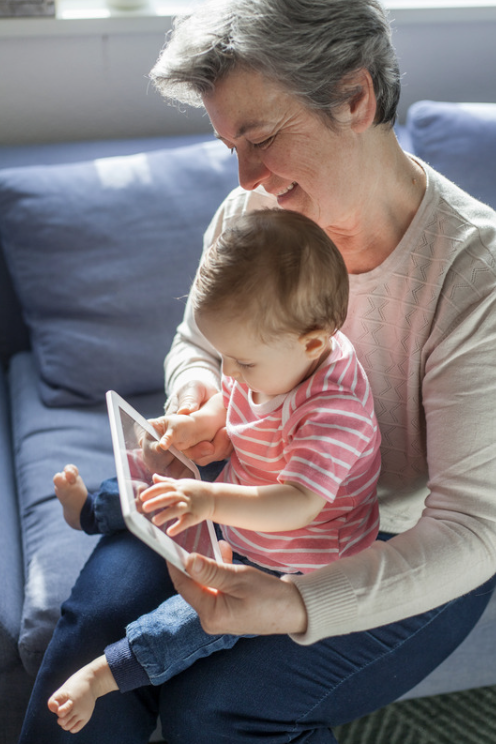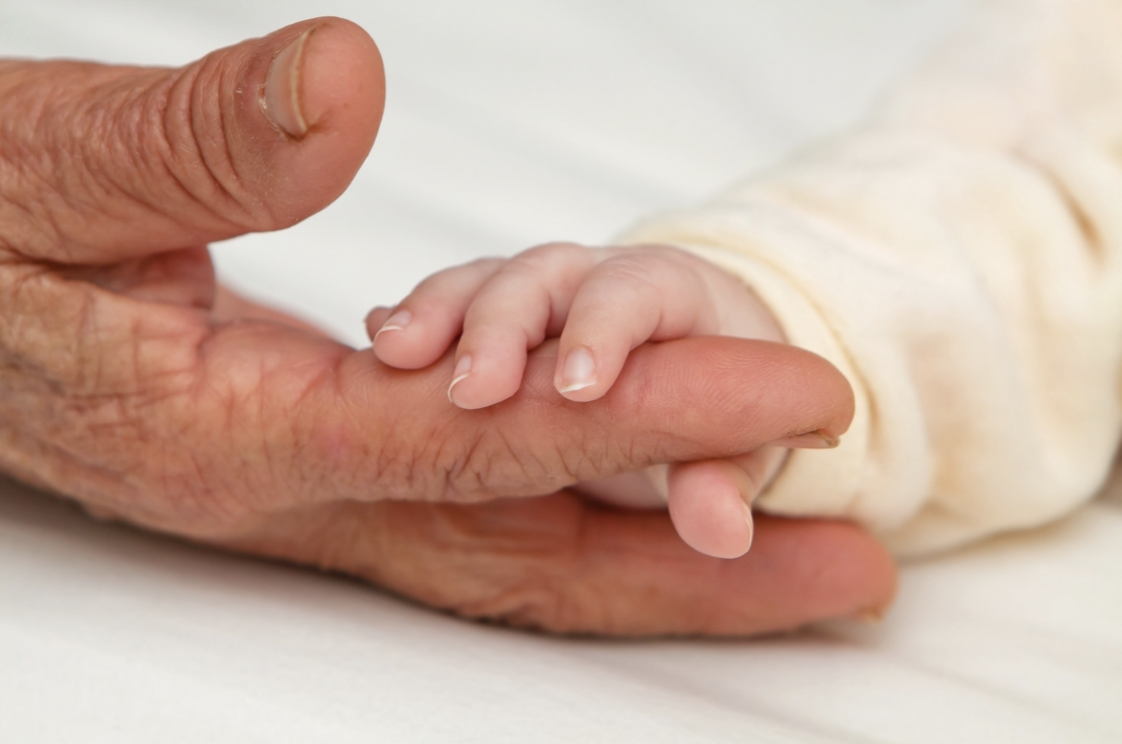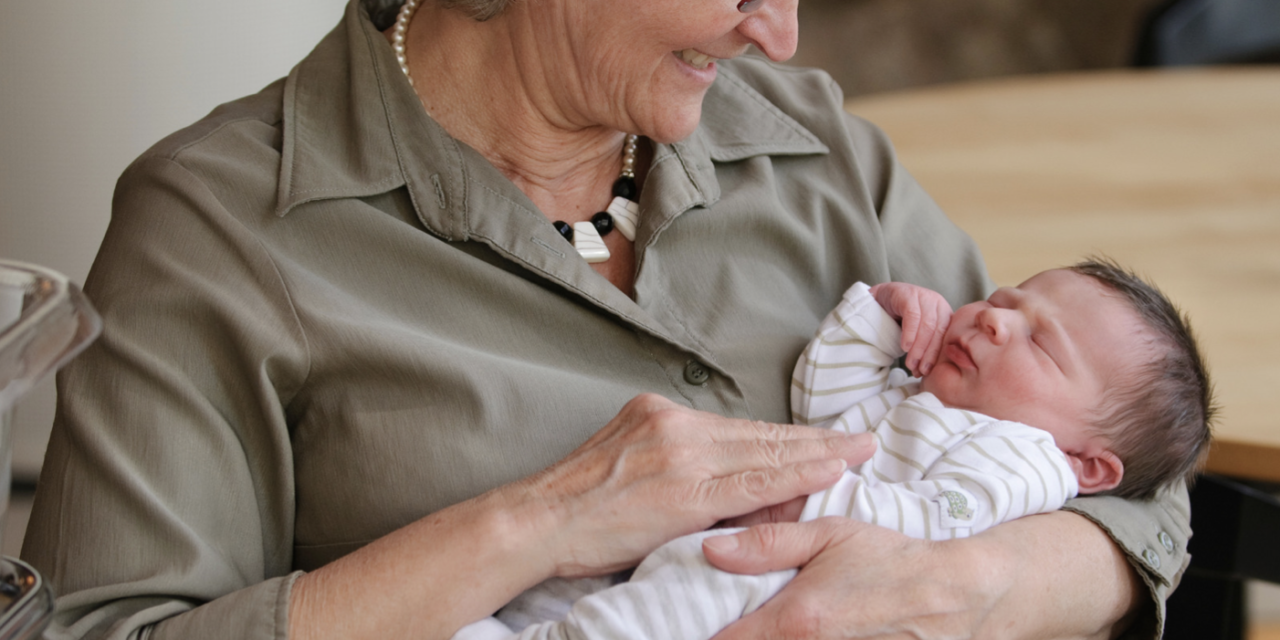Les défis des grands-parents (et parents) expatriés !
J’ai eu mes enfants dans un pays enclavé d’Afrique, à 10 000 km de ma mère qui vivait à Londres. Nous ne pouvions pas passer chez elle pour jouer, ni lui demander une aide occasionnelle pour le baby-sitting !
Elle-même avait grandi à l’étranger et, d’une certaine manière, notre situation familiale était “normale” pour elle, ou du moins familière. Cependant, ses deux parents venaient d’un milieu très similaire contrairement à mon mari qui vient d’un autre pays et d’une autre culture.
Elle trouvais que lui et moi faisions les choses très différemment et pas du tout comme elle s’y attendait. Elle avait tendance à penser que je me pliais trop à sa façon ! Tout ce qu’elle ne comprenait pas ou n’aimait pas dans nos routines de garde d’enfants, elle essayait de lui mettre sur le dos !

Le stress et les tensions peuvent être très difficiles à gérer lorsque vous êtes sous le même toit et qu’il n’y a “aucun échappatoire”. Souvent, les grands-parents ont une façon de gérer les enfants qui est différente de la vôtre et, alors que vous êtes de nouveaux parents et que vous essayez de vous établir en tant que parent, il est particulièrement difficile de se sentir jugé ou critiqué. Ou, de ne pas comprendre ce qui est dit car vous ne partagez pas la même langue que vos beaux-parents !
Dans certaines situations, les enfants ne connaissent pas encore leurs grands-parents, et les grands-parents ne connaissent pas non plus leurs petits-enfants. Ces derniers se trouvent dans un climat différent, doivent porter des vêtements inconnus, entendent parler des langues différentes, suivent une routine différente, mangent une nourriture différente, savent que les attentes à leur égard sont différentes…
Et ils peuvent devenir très collants et incertains face à tous ces changements. Les grands-parents peuvent être déçus. Tout le monde peut ressentir de la déception, voire de la honte. Cela met à l’épreuve la patience et la tolérance de chacun !
Mon tour est arrivé !
Maintenant que je suis sur le point de devenir moi-même grand-mère, je me demande comment me préparer au mieux à ce rôle. Comme dans ma famille et dans celle de ma mère, mon petit-enfant va naître à des milliers de kilomètres de chez moi, et je ne pourrai donc pas passer pour faire du baby-sitting occasionnel.
Nous devrons planifier un peu plus, ce qui à mon avis, peut être un avantage car des détails comme la durée de mon séjour et le type de choses que je ferai lors de ma visite devront être discutés au moment de la planification.
Mais comment cela se passera-t-il si je reste avec mon fils et ma belle-fille et leur bébé ? Mon petit-enfant sera immergé dans une culture étrangère et parlera une langue que je ne connais pas !
Je me souviens très bien, lorsque nous séjournions chez mes parents (ou beaux-parents) à quel point je ne me sentais pas à la hauteur. A quel point je me sentais jugée par ma mère et par mes beaux-parents lorsque je faisais des choses en tant que parent qu’ils n’aimaient pas.

Une leçon à tirer
Je suppose qu’une bonne leçon que j’ai apprise en tant que parent est de “choisir ses batailles”. Oui, établissez des règles et des limites, mais cela n’aura aucune importance si une fois ou deux vous faites des exceptions. De même, qu’est-ce qui est le plus important ? La sécurité de votre enfant ou le fait que vous lui coupiez les cheveux aujourd’hui ou la semaine prochaine ?
Je trouve que le fait d’écouter les “objections” de mes parents et beaux-parents et de ne pas imposer mes propres désirs tout le temps a donné à mes enfants le sentiment que leurs opinions comptaient, qu’il y avait des domaines de leur vie sur lesquels ils pouvaient agir, et qu’ils pouvaient choisir et explorer leurs limites.
En tant que futur grand-parent, je vais ESSAYER d’appliquer le même principe… Je suis également consciente que je vais devoir apprendre à être un grand-parent. En tant que parent, j’ai appris que bien que ces rôles de mère, père, sœur, grand-père, tante, etc. existent dans la société, nous devons nous les approprier pour leur donner un sens.
Alors que j’essaie de me préparer à ce nouveau rôle, je lis de nombreux articles en ligne sur le rôle de grands-parents. Certains sont écrits pour aider les grands-parents à réfléchir à la façon dont ce nouveau rôle les affectera. D’autres sont écrits pour aider les nouveaux parents à se préparer à développer une bonne relation avec leurs parents et beaux-parents.
Ils ont trois thèmes communs : La communication, la fixation de limites et le respect.
En écrivant ces lignes, je viens de réaliser quelque chose : j’aimerais travailler avec un coach qui me guiderait. Prendre quelques séances pour explorer mes sentiments et m’aider à poser de la meilleure façon possible le genre de questions qui nous aideraient tous à réfléchir à la meilleure façon de travailler ensemble. Cela dans le but de nous habituer aux attentes et aux besoins de chacun!
Je pense que dans cette situation où nous sommes tous des débutants, un coach familial serait la personne idéale pour partager les espoirs et les craintes, établir des règles de base et m’aider à me sentir soutenue dans cette nouvelle aventure !
Help ! I’m going to be a grandmother!
The challenges of expat grand-parenting !
I had my children in a land-locked country in Africa, 6,000 miles away from my mother in London. We could not drop in for playtime, or ask her for occasional baby-sitting help!
She herself had grown up overseas so, in a way, our family situation was ‘normal” to her – or familiar, at least. However, both her parents had come from a very similar background. She found my husband (who came from a different country and different culture) and I did things very differently and not at all the way she expected. She tended to think that I was bending too much to his way – anything she didn’t understand or like with our child-care routines she tried to blame on him!

In such a situation, children may not yet know their grandparents, nor do the grandparents know the children. The children are in a different climate, having to wear unfamiliar clothing, hearing different languages spoken, following a different routine, eating different food, aware there are different expectations of them. And they can become very clingy and uncertain when faced with all these changes. The grandparents can be disappointed. Everyone can feel disappointment – even shame. It tests the patience and tolerance everyone.
It’s my turn !
Now I am about to be a grandmother myself I am wondering how best to prepare myself for the role. Just as in my family and my mother’s family, my grandchild is to be born thousands of miles away – so I will not be able to drop in to help with occasional baby-sitting. We will have to plan a bit more, which I can see can be an advantage as details like the length of my stay and the type of things I will do when I visit will need to be discussed at the planning stage. But how will it be if I stay with my son and daughter in law and their baby? My grandchild will be immersed in a foreign culture and will speak a language I don’t know!
I can well remember how inadequate I felt, how judged I felt by my mother and by my parents in law and when I did things as a parent that they didn’t like – when I stayed with them – under their roof. I was brought up to respect them, but I found that there were certain things to do with raising my child that I did not want to compromise over.. For example, my mother criticized me for letting my husband change the nappies and give the children their bath. I was sad she felt that way, but I didn’t think he should listen to her! My mother in law didn’t like me to breast feed, or pump and she objected to the clothes that I dressed the children in. I did put on different clothes – though never stopped putting my little boy in pink as I thought the colour suited him so well. My father in law couldn’t understand his grandchildren as they spoke English with a ‘funny’ accent. Perhaps that is why they now have American accents and I am the only one in the family who sounds English!
A lesson to learn
I suppose a good lesson I learned as a parent is to ‘pick your battles!” Yes, have rules and boundaries but it won’t matter if once or 
As a grand-parent-to-be I am going to TRY and apply the same principle…I am also aware I am going to have to learn to be a grandparent. If anything being a parent I learned that that though these roles of mother, father, sister, grandfather aunt etc exist in society, to make any sense of them, we have to make them our own.
As I try to prepare myself for the new role, I am reading lots of articles on-line about grandparenting. Some are written to help grandparents think about how the new role will affect them. Ohers are written to help new parents prepare themselves for developing a good relationship with their parents and in-laws.
They have three common themes: Communication, setting boundaries and being respectful
Writing this I have just realized something – I would like to work with a with a coach as a guide; to take a few sessions to explore my feelings and to help me ask in the best way the sort of questions that will help us all to think about how we can best work together, so we get used to each other’s expectations and needs. I feel that in this situation where we are all first timers, a family coach would be the ideal person to share hopes and fears, establish ground rules, and help me feel supported on this new adventure!








